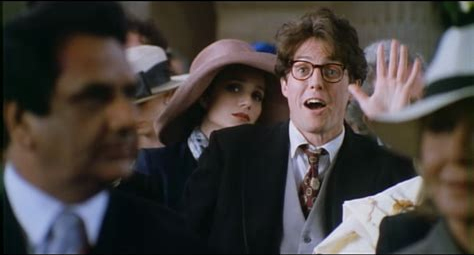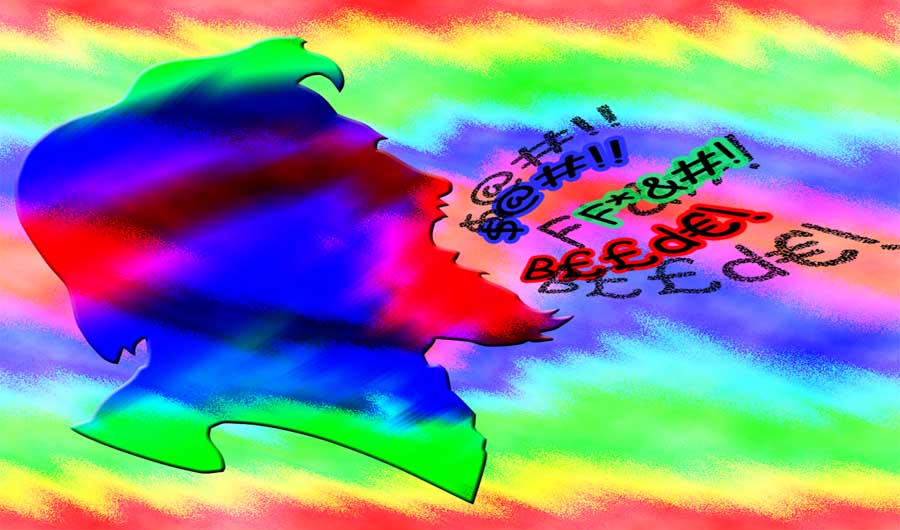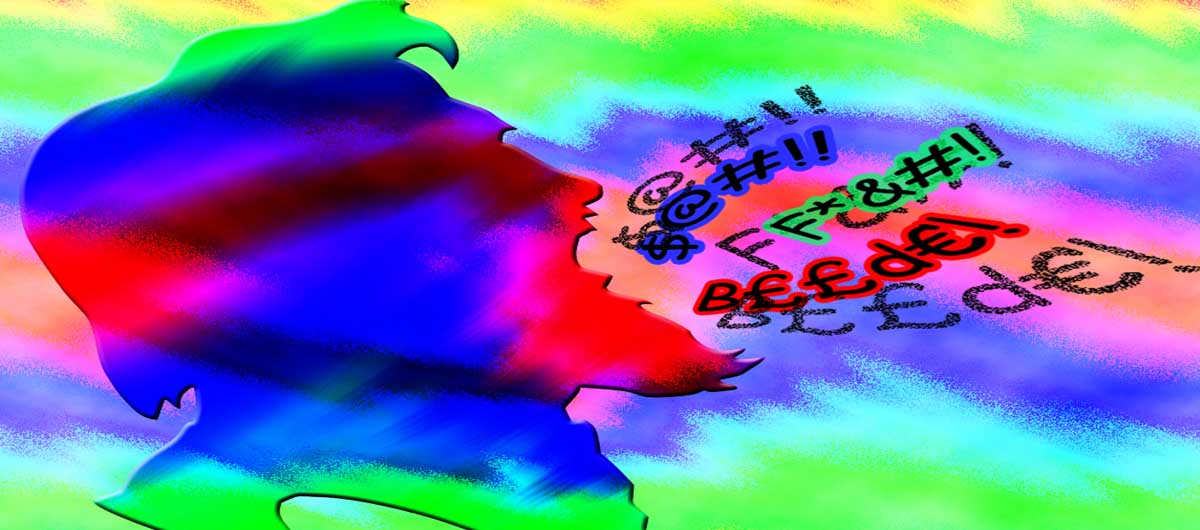
I use the F-word more often nowadays than I used to. I’m not really sure why, but I’ve definitely crossed some sort of a barrier. I don’t mean I curse like Hugh Grant’s character in Four Weddings and Funeral – “Oh, fuck. Fuck. Fuckety-fuck, fuck-fuck.” (I may have that quote slightly wrong.) But I’m definitely more f-mouthed than once I was.
Never very sweary
I used to be a teacher of English and other subjects. Around my students, I made sure to moderate my language, but even before I started teaching I was never very sweary. When I was myself a student at Leeds University in my early twenties, and working between times, one of the places I worked was a metal fabricating company. (I was the tea boy.) There I overheard a lot of casual swearing.
Even in the steel fabricating company, though, there were degrees of bad language use. There was one older labourer in the firm whose every second or third word was a curse. It was the first time I heard someone make swear words perform nearly every grammatical role. Nouns, adjectives, verbs, interjections, conjunctions. Maybe even pronouns (as in an indignant “Fucker fucked me!”) But he was exceptional and the other guys used to make fun of him for it.
I don’t want to give the impression that I hadn’t heard much swearing before. It may not have been common in my home, but going up to university certainly exposed me to a rich and varied flora. There was probably more swearing and of a greater variety in the Leeds student bars than in the any of the places I worked while I was studying. But those were students and their swearing was an affectation. At the steel fabricator’s I was among working class adults in their 20s, 30s and 40s. Their cursing was a mode of communication. Or rather, it was the seasoning on top of their communication.
Curse words in English
Years later, teaching English in Sweden, I used to hear my Swedish students coming out with English swear words. I had colleagues who were very offended by this. Their position was that the kids shouldn’t curse at all. A position shared by many school teachers in Britain and the USA, no doubt.
My irritation, by contrast, was more over the kids almost never managing to pronounce the words quite correctly. Almost never managing to deliver them at quite the right moment, or with quite the right intensity. (The exception was Shit, which is very similar in pronunciation and use to its Swedish equivalent. The kids always got that one right.)
There’s a good argument to be made for teaching language students the coarse as well as the refined vocabulary of their target language, I think. But it needs to be done in a way that is sensitive to the functions of swearing. People swear for different reasons and one reason is to establish group solidarity. When a foreign language student comes along and tries to join in by swearing, even if they’ve been invited to participate, misusing the words risks them becoming a joke at best. At worst, since these words are loaded with social connotation, it might lead to violence.
Actively teach English curse words. It’s easy for me to say, ten years after having left the classroom. Maybe I should get back to the core of this post; the changes in my own swearing pattern.
Against the trend
For very many years I really didn’t swear all that much, and if I did I’d usually confine myself to “bloody”. Or “bloody hell” for emphasis. But then I quit teaching and over the years since I left the classroom, I’ve noticed this shift, from “bloody” to the f-word, and to a greater frequency.
Not a lot. I’m not channelling my one-time workmate. (Who’s probably, by now, a good 30 years dead.) But still, more than I used to.
Recently I learned that I’m going against a trend, at least among speakers of British English. Back in England, swearing is on the decline. Earlier this year Dr. Robbie Love, an academic at Aston University, published research showing “swear word usage is significantly lower in the 2010s … than the 1990s …” He made it 27% less common.
He also confirmed that “swearing generally takes up a very small proportion of speaker output”. People never really swore all that much, and they’re swearing less often now. (Or at any rate, less often in 2010 than they did in 1990 – these being the dates of the data sets Dr. Love used.)
A child of my time
In one respect, though, it seems I am a child of my time. The research also showed that, despite a decline in overall swearing, Fuck and its variants have replaced Bloody as the curse word of choice for British speakers. In the 1990s the three swear words most often employed were: 1) Bloody, 2) Fuck and 3) Shit. In 2010, the rankings were 1) Fuck, 2) Shit, 3) Bloody.
Mind you, it looks like Shit is on the rise and may itself replace Fuck in the rankings when someone does a comparable study in twenty years or so. Maybe a Four Weddings remake will have it’s protagonist exclaiming “Oh, shit. Shit. Shitty-shit, shit-shit.”

Reference and notes
Swearing in informal spoken English: 1990s–2010s by Dr. Robbie Love (pub. De Gruyter Mouton 16/08/2021)
The original silhouette of a bearded man shouting is by Clker-Free-Vector-Images and comes from Pixabay with thanks.





Intressant. Vi borde ha läst detta före idag!